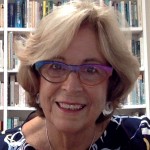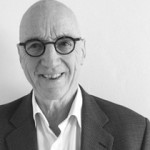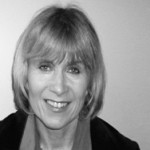INTHEBLACK – 9 essentials of executive coaching
http://intheblack.com/articles2016/12/01/9-essenitals-of-executive-coaching
Dr Hilary Armstrong is an executive coach and coach supervisor with Sydney coaching practice WhyteCo. She wrote the curriculum for, and led the delivery of, IECL’s accredited coaching program for 10 years and has witnessed the industry’s escalation.
“In the late 1990s, when coaching was just starting, it tended to be used for remedial purposes,” she says. “Then around 2010, when uptake by organisations really increased, it was commonly used to increase performance and productivity. Today, there is more of a focus on developing potential.”
Business Ethics:- Navigating the line between good conduct and misconduct
PricewaterhouseCoopers, Darling Park, Tower 2, Level 10, 201 Sussex Street, Sydney
Mon 16 February 2015 | 4.00pm Presentation
Recent events, particularly in the financial advice industry, have brought the topics of ethical behaviour and conduct into sharp focus in Australia. Establishing and embedding a culture in which employees conduct themselves in the ‘right’ way, doing the ‘right’ thing at the ‘right’ time, regardless of circumstance, is critical to an organisation’s ability to conduct itself in a manner that is commensurate with its regulatory obligations, the expectations of its stakeholders, including its customers, and its corporate vision.
In this session we will hear from Hilary Armstrong from the St James Centre on individual ethics and how organisational cultures shape employees’ interpretation of the boundaries between good and bad conduct. This short presentation will be followed by a panel discussion in which panelists will share their views and practical experiences on the way in which a range of organisational processes and practices (such as, product design and approval processes, origination and sales processes, governance, and performance reward and consequence management) influence the behaviours and conduct of employees, shape the organisation’s culture and determine the exposure to the risk of misconduct.
Speakers: Dr. Hilary Armstrong MCC, Head of the Practice, St James Ethics Centre;
Wellbeing Australia 2013 – Review of Book Chapter in Roffey S (ed) Positive Relationships: Evidence Based Practice across the World
“We all have relationships – with our partners, children, parents, friends, colleagues and many others. And, according to the authors of Positive Relationships: Evidence Based Practice across the World – several of whom are associated with Wellbeing Australia, the quality of these relationships is critically important for our overall wellbeing. This may seem obvious but many people struggle in their relationships – perhaps at work or in families – or behave in ways that do not take account of other people – or make quick judgments based on stereotypes”.
herBusiness program
Welcome to the herBusiness program, where we interview inspiring businesswomen and entrepreneurs.
In this episode, we interview Dr Hilary Armstrong, Director of Education at The Institute of Executive Coaching
Listen to this herBusiness interview with Dr. Hilary Armstrong to learn:
- Whether we have lost the ability to engage in meaninful (and therefore effective) conversations
- How women and men differ in conversation styles
- How we can create a culture of effective workplace conversations
- The key applications for good conversations
- What results leaders can expect from focusing on improving these skills
- Tips for having more effective conversations
ThomasReuters thomsonreuters.com.au/workplace/tag/dr-hilary-armstrong/
By HR Report on 13 December, 2012
Australians need to shift approaches to leadership and focus on “connected intelligence” (CI) to cope with social media and the “democratisation of knowledge”, an Institute of Executive Coaching and Leadership (IECL) white paper said.
From Sydney Morning Herald Business Daily 2011
Article on the importance of Social Intelligence in Leadership
From hrdaily 2009
Leadership development has for too long been focused on individual leaders, ignoring the impact of context and networks
On Collaborative Leadership:
Dr Hilary Armstrong describes her outlook and philosophy on executive coach training when Director of Education at the IECL..















